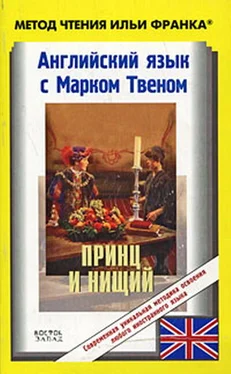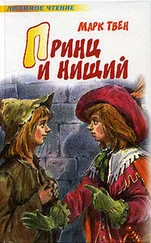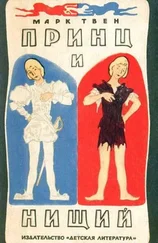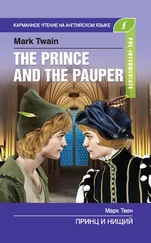'He, also, is dead (он также мертв).'
'God be merciful to me (Господь будь милосерден ко мне), a stricken man (несчастному человеку)! Gone (ушли = умерли) — both gone (оба умерли) — the worthy taken and the worthless spared in me (достойны взяты, а недостойный пощажен во мне = в моем лице; to take — брать)! Ah (ах)! I crave your mercy (я умоляю о вашей милости)! — do not say the Lady Edith (не говорите что леди Эдит) —'
'Is dead (мертва)? No, she lives (нет, она живет).'
'Then God be praised (тогда Бог да будет восхвален), my joy is whole again (моя радость цела снова)! Speed thee, brother (поспеши, брат) — let her come to me (позволь ей = пусть она придет ко мне)! An’ she say I am not myself (если она скажет, что я не я) — but she will not (но она не будет = не сделает этого); no, no, she will know me (нет, нет, она узнает меня), I were a fool to doubt it (я был дураком — сомневаться в этом). Bring her (приведи ее) — bring the old servants (приведи старых слуг); they, too, will know me (они тоже узнают меня).'
'All are gone but five (все ушли = умерли кроме пятерых) — Peter, Halsey, David, Bernard, and Margaret (Питера, Холси, Дэвила, Бернарда и Маргарет).'
So saying, Hugh left the room (так говоря, Хью покинул комнату; to leave — оставлять, покидать). Miles stood musing awhile (Майлс стоял размышляя некоторое время; to stand — стоять), then began to walk the floor (затем начал ходить по полу; to begin — начать), muttering (бормоча):
intruder [ın`tru:də], devour [dı`vauə], resemblance [rı`zembləns]
The next moment Hendon sprang to the ground before the great door, helped the king down, then took him by the hand and rushed within. A few steps brought him to a spacious apartment; he entered, seated the king with more hurry than ceremony, then ran toward a young man who sat at a writing-table in front of a generous fire of logs.
'Embrace me, Hugh,' he cried, 'and say thou'rt glad I am come again! and call our father, for home is not home till I shall touch his hand, and see his face, and hear his voice once more!'
But Hugh only drew back, after betraying a momentary surprise, and bent a grave stare upon the intruder — a stare which indicated somewhat of offended dignity at first, then changed, in response to some inward thought or purpose, to an expression of marveling curiosity, mixed with a real or assumed compassion. Presently he said, in a mild voice:
'Thy wits seem touched, poor stranger; doubtless thou hast suffered privations and rude buffetings at the world's hands; thy looks and dress betoken it. Whom dost thou take me to be?'
'Take thee? Prithee, for whom else than whom thou art? I take thee to be Hugh Hendon,' said Miles, sharply.
The other continued, in the same soft tone:
'And whom dost thou imagine thyself to be?'
'Imagination hath naught to do with it! Dost thou pretend thou knowest me not for thy brother Miles Hendon?'
An expression of pleased surprise flitted across Hugh's face, and he exclaimed:
'What! thou art not jesting! can the dead come to life? God be praised if it be so! Our poor lost boy restored to our arms after all these cruel years! Ah, it seems too good to be true, it is too good to be true — I charge thee, have pity, do not trifle with me! Quick — come to the light — let me scan thee well!'
He seized Miles by the arm, dragged him to the window, and began to devour him from head to foot with his eyes, turning him this way and that, and stepping briskly around him and about him to prove him from all points of view; whilst the returned prodigal, all aglow with gladness, smiled, laughed, and kept nodding his head and saying:
'Go on, brother, go on, and fear not; thou'lt find nor limb nor feature that cannot bide the test. Scour and scan me to thy content, my dear old Hugh — I am indeed thy old Miles, thy same old Miles, thy lost brother, is't not so? Ah, 'tis a great day — I said 'twas a great day! Give me thy hand, give me thy cheek — lord, I am like to die of very joy!'
He was about to throw himself upon his brother; but Hugh put up his hand in dissent, then dropped his chin mournfully upon his breast, saying with emotion:
'Ah, God of his mercy give me strength to bear this grievous disappointment!'
Miles, amazed, could not speak for a moment; then he found his tongue, and cried out:
'What disappointment? Am I not thy brother?'
Hugh shook his head sadly, and said:
'I pray heaven it may prove so, and that other eyes may find the resemblances that are hid from mine. Alack, I fear me the letter spoke but too truly.'
'What letter?'
'One that came from oversea, some six or seven years ago. It said my brother died in battle.'
'It was a lie! Call thy father — he will know me.'
'One may not call the dead.'
'Dead?' Miles's voice was subdued, and his lips trembled. 'My father dead! — oh, this is heavy news. Half my new joy is withered now. Prithee, let me see my brother Arthur — he will know me; he will know me and console me.'
'He, also, is dead.'
'God be merciful to me, a stricken man! Gone — both gone — the worthy taken and the worthless spared in me! Ah! I crave your mercy! — do not say the Lady Edith —'
'Is dead? No, she lives.'
'Then God be praised, my joy is whole again! Speed thee, brother — let her come to me! An’ she say I am not myself — but she will not; no, no, she will know me, I were a fool to doubt it. Bring her — bring the old servants; they, too, will know me.'
'All are gone but five — Peter, Halsey, David, Bernard, and Margaret.'
So saying, Hugh left the room. Miles stood musing awhile, then began to walk the floor, muttering:
'The five arch villains (пятеро отъявленных негодяев) have survived the two-and-twenty leal and honest (пережили двух и двадцать = 22 верных и честных) — 'tis an odd thing (это странная вещь).'
He continued walking back and forth (он продолжал ходить взад и вперед), muttering to himself (бормоча себе /под нос/); he had forgotten the king entirely (он забыл короля полностью; to forget — забывать). By and by his majesty said gravely (вскоре его величество сказал важно), and with a touch of genuine compassion (и с оттенком истинного сострадания), though the words themselves (хотя сами слова) were capable of being interpreted ironically (могли быть интерпретированы иронически: «были способны…»; capable — способный):
'Mind not thy mischance (не заботься о своем злосчастье), good man (добрый человек); there be others in the world (есть и другие в мире) whose identity is denied (чья личность отрицается; to deny — отрицать), and whose claims are derided (и чьи утверждения осмеиваются). Thou hast company (у тебя есть компания = ты не один).'
Читать дальше
Конец ознакомительного отрывка
Купить книгу




![Марк Твен - Принц и нищий [Издание 1941 г.]](/books/148799/mark-tven-princ-i-nichij-izdanie-1941-g-thumb.webp)







